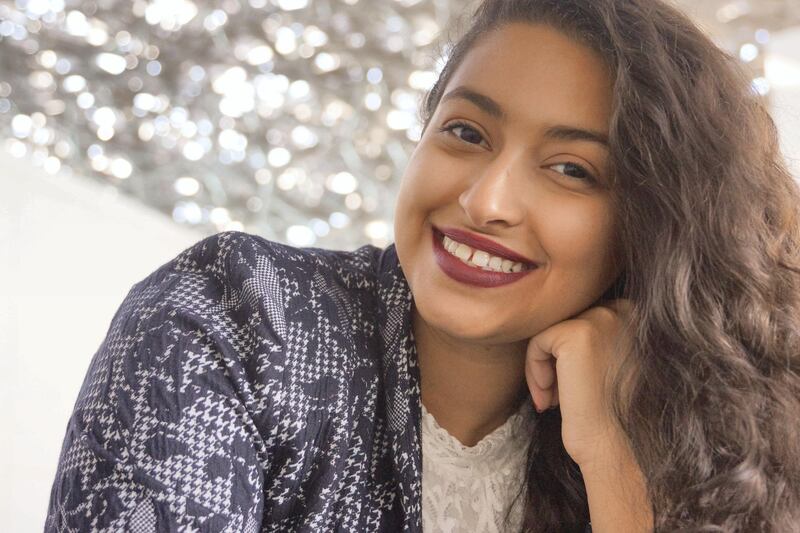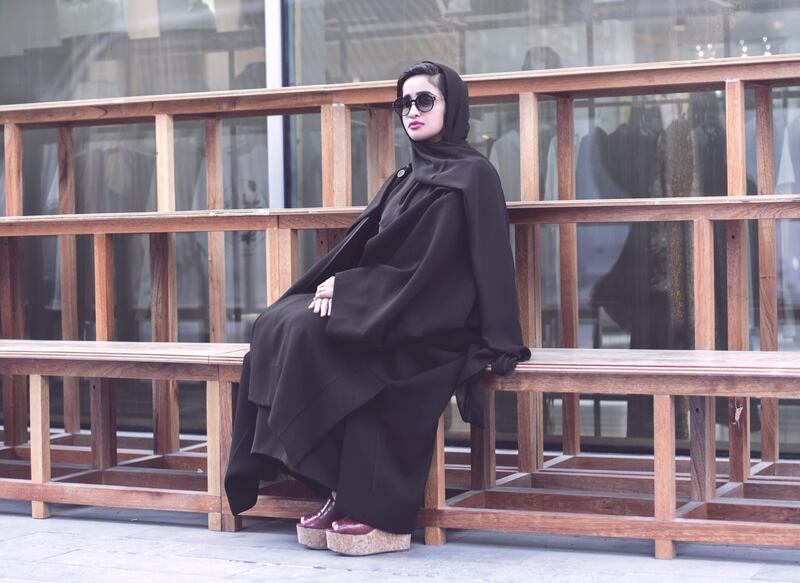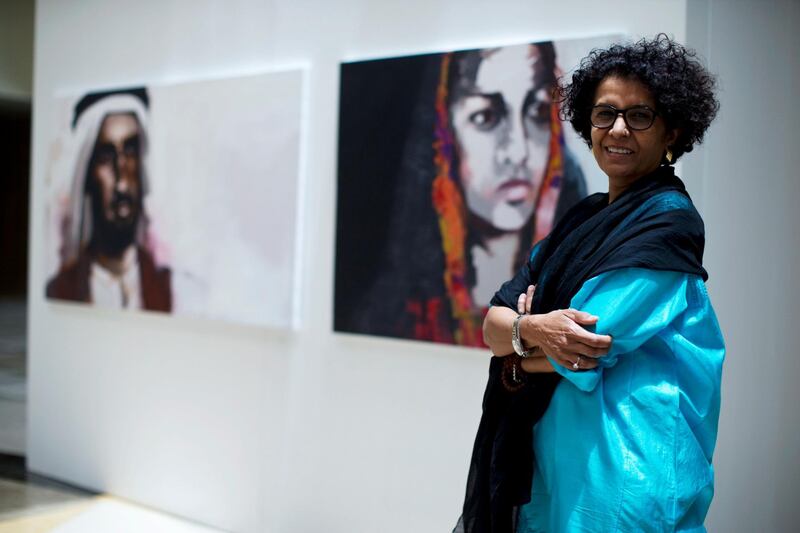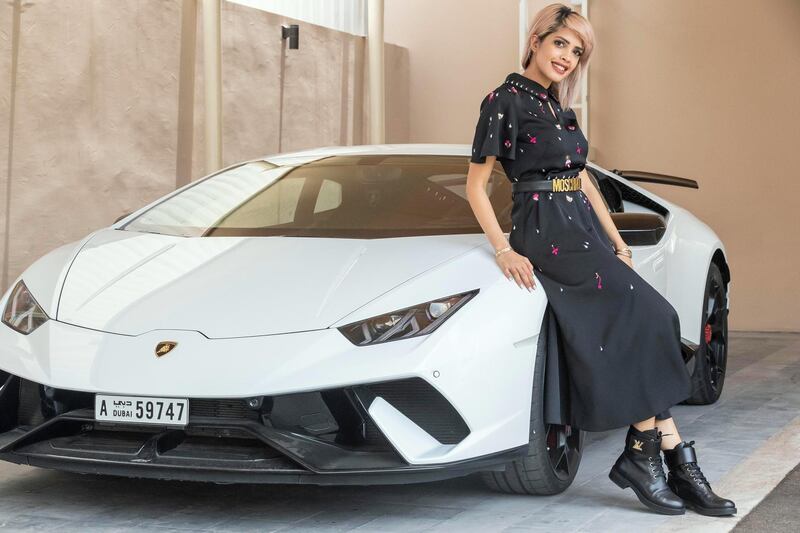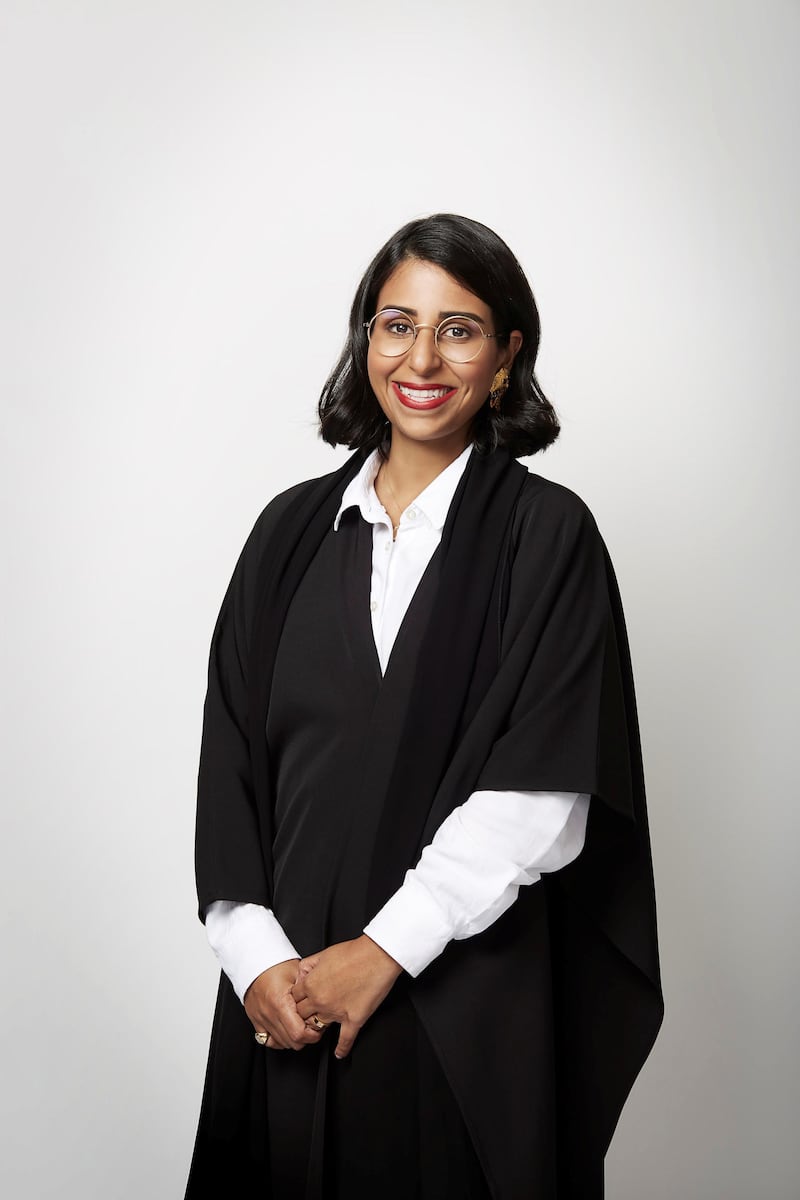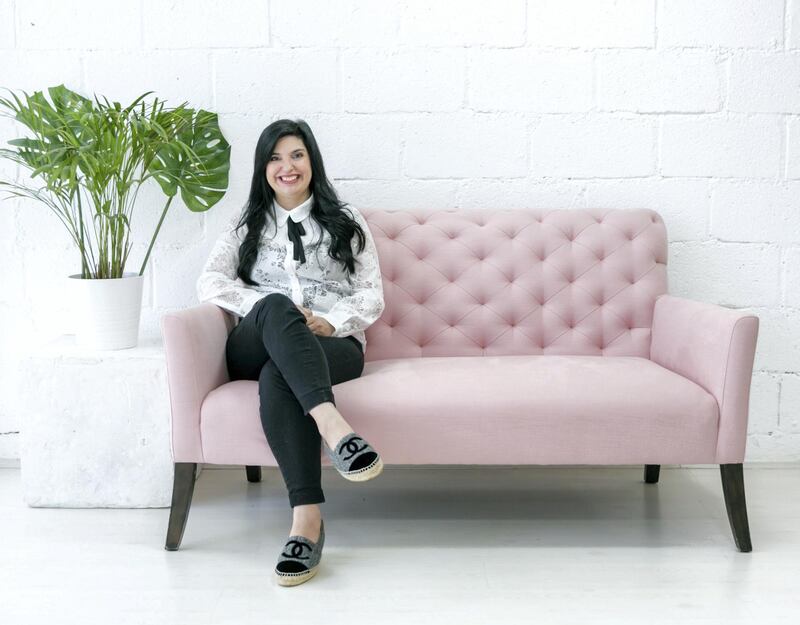Today is Emirati Women's Day, which was launched three years ago to honour the women who have shaped the UAE.
To mark the occasion, we speak to seven Emirati women about their sense of identity, and how different their experiences are from the generations before them...
1. Amna Al Haddad, weightlifter and motivational speaker
How do you think your experience has been different from your mother’s?
It has been very different. Comparing the past and present, I think the present is not as forgiving. There are a lot more expectations to achieve and become successful, especially among the youth, which often sets us up for a bigger disappointment if we don’t achieve as fast. Sustainable growth takes time to achieve. Many would think that my journey in sport was an overnight success … but it has been in the making for almost a decade, starting by changing my own mindset and mental health, with very little focus on the end goal as success.
What do you think is the most important lesson you can teach the next generation?
Self-acceptance. With self-love and self-acceptance comes learning to work on your goals – both internal and external – without being hard on yourself. At the end of the day, achievements are a check-point not an end-point.
Do you think that there are still misconceptions about women in the UAE? What are the most common?
One of the biggest misconceptions is that all Emiratis are wealthy or rich, and that Emirati women are taken care of by the male figures in their family, and as such, they do not need to work or require an income of their own. There are many kinds of families living in the UAE, and many women are independent financially … Women’s work needs to be taken as seriously as their counterparts’, including pay received for similar jobs done by men. Our leaders have been pushing for that change, and it is time it’s implemented at grass-roots level.
2. Aisha Alkhaja, e-commerce entrepreneur, founder of Little Wren
How do you think the role of women in the UAE has changed in your lifetime?
I believe it has changed massively. Women are becoming more outspoken, they know what they want with their future and have become more educated, resulting in more driven women in the workplace. Women are starting to realise that you can have a career as well as a family.
How do you think your experience has been different from your mother’s?
My experience has been very different to my mother's, as my mother is British and she grew up in the UK. I was fortunate enough to be able to go to university and study, while this wasn't an option for her. She was a stay-at-home mum, whereas I am a working mum and a business-owner, so times have changed in just a few decades.
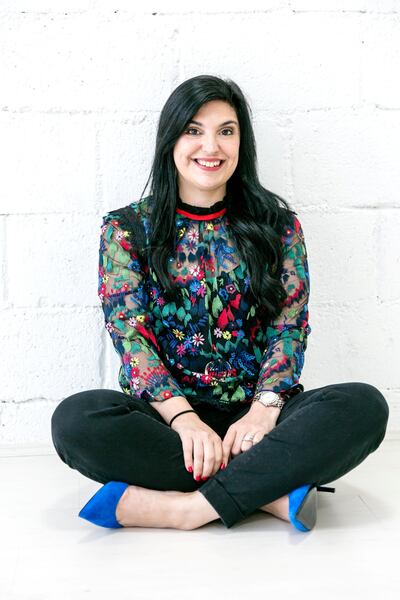
What are your hopes for the next generation of Emirati women?
I hope we see the number of women in the workplace growing, and I hope more Emirati women become independent in the way they live their lives and the choices they make. I see more Emirati women making their own life choices that are in line with religion, and culture. The growth in women choosing to have an education and a career has really changed over a few generations – and it will continue to do so
Do you think there are still misconceptions about women in the UAE? What are the most common?
Yes, especially in the workplace and with opportunities. It is thought that women can’t do as much as men. I think women can actually do more, as we are great multitaskers. Because we have been made to feel like we have something to prove, this only makes us push ourselves further and achieve more. There is still a stigma of men versus women in the Middle East, but women are on the rise and we will break this stigma.
3. Maha Al Shamsi, supercar enthusiast, member of Lamborghini's female advisory board
How do you think the role of women has changed in the UAE in your lifetime?
I grew up in a very traditional Emirati home in Al Ain, as I grew up things became more and more acceptable in our culture. Emirati women now run some of the biggest companies in the UAE.
What do you think is the most important lesson you can teach the next generation?
There are a number of lessons I teach my children, but above all it's about tolerance, perseverance, compassion and unity for the common good. If I had a daughter, which is something that I actually dream of, I would be very protective naturally, but at the same time I would encourage her and tell her she can be whatever she wants to be in life and there are no barriers and sky is the limit.
What are your hopes for the next generation of Emirati women?
To continue developing themselves and our country. There are no obstacles but the ones we create for ourselves. You have a voice, so let it be heard. I am very proud to hear that Emirati women are becoming a very integral part of our society, from being a minister to wanting to be an astronaut, a lot of this is thanks to the rulers of our country facilitating the opportunities and encouraging all of us to be the best we can be.
What are the biggest challenges you face as a woman in the UAE?
I have never faced any challenges that a man has not also faced, when I started working I realised very quickly that men and women are competing at the same level.
Do you think that there are still misconceptions about women in the UAE? What are the most common ones?
Misconceptions and an “old way” of thinking are still there in my generation, albeit less prominent than some years back with the rise in levels of education.
_________________
Read more on Emirati women:
[ Emirati Women's Day: the lessons of Sheikh Zayed are still empowering UAE women today ]
[ The Al Hanaei sisters excel at the Asian Games ]
[ Women lead the way in science ]
[ The equestrian quest to get women in the saddle ]
_________________
4. Haif Zamzam, group strategy manager, Adnoc
How do you think the role of women has changed in the UAE in your lifetime?
The UAE has been pushing the standard for what it means to empower women ever since I can remember. Our Constitution guarantees equal rights for both men and women. The one thing that has changed throughout my life is that we have become more visible due to the different news and media outlets that are highlighting our successes.
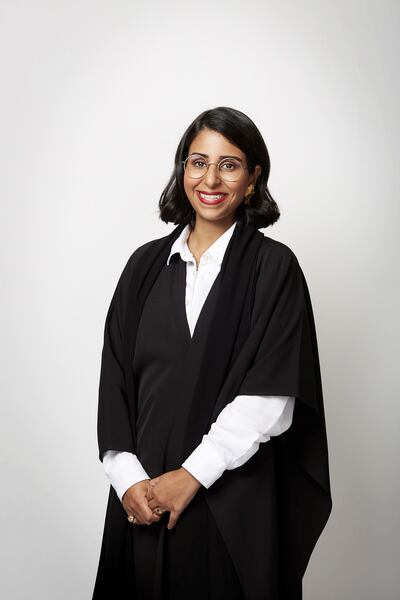
How do you think your experience has been different from your mother’s?
Each generation has their own opportunities and challenges, as with anywhere in the world. The challenges of the past included limited education opportunities in the country, so my mother’s family actually went to Kuwait to pursue their primary and secondary education. She came back to study psychology at the UAE University and started her 22-year career with the Ministry of Labour, where she focused on special projects such as Abu Dhabi’s centre for children with special needs.
There was a two-year career pause when she accompanied my father to pursue his MBA in California, but she made sure to take advantage of those two years and she enrolled in language classes while raising two young children, with a third on the way. When it came to our schooling, there were a number of really strong opportunities. Both my mother and I were blessed with extremely supportive families that weighed both their daughters and sons equally. My mother pushed me to continue my education by telling me that my degrees will always be a shield I hold up to the challenges of the world, while my father expected us all to pursue our education at least through to a master’s degree.
What are your hopes for the next generation of Emirati women?
To not hold back – in your education and with your career. Speak your mind, stand up tall and keep pushing for the successes of our country. The daughters of Zayed are a force to be reckoned with, and one that will not stop striving for excellence. Once you succeed, you should celebrate your success by sharing your story to encourage younger women to come forward as well.
Who are the women you look up to?
There is no shortage of people to look up to as a woman in the UAE. Looking at milestones such as Shaika Lubna’s appointment as the first female minister back in 2004, Dr Amal Al Qubaisi’s historic appointment as speaker of the UAE Federal National Council in 2015 and having nine female ministers in the UAE Cabinet makes me feel proud and that I, as an Emirati woman, could do anything.
What are the biggest that challenges you face as a woman in the UAE?
Women in the UAE are becoming more and more educated and are sitting at the table and making decisions alongside our brothers. Every challenge I have faced throughout my career I have taken on as an opportunity because I know I will find the support within our nation’s leadership, Adnoc’s management and within my family. The biggest challenge is keeping up with opportunities that come your way and continuously encouraging women to enter the workforce. Today, I am running the Group Strategy Department at Adnoc and have had no challenges due to me being a woman. We are so focused on delivering the most value we can to our country that we constantly challenge each other’s thinking to ensure we are not leaving any opportunity unconsidered.
5. Hessa Falasi, founder of HF Boutique, modern abaya designer
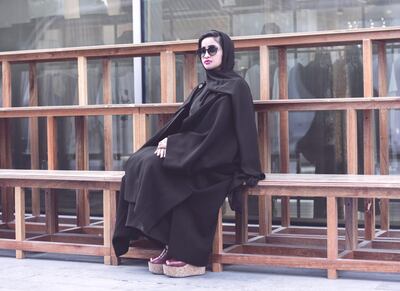
How do you think your experience has been different from your mother’s?
Years ago, my mother didn’t enjoy the same freedom and opportunities I am able to experience. She was brought up in a conservative era, and more so in a close-minded society where her voice played little importance. I learnt to drive, to build my own company, to travel to places I’ve never been to. I raise my kids without considering others’ opinions. I stand up for what is right and I am not afraid to fall.
Her designs:
What do you think is the most important lesson you can teach your daughter?
To be patient. She should not be impulsive; she must develop the right attitude to succeed, be it in her personal life or her career goals. Everything will fall into the right place at the right time if she learns how to wait.
Who are the women that you look up to?
If there’s one person I look up to and want to emulate, it’s my grandmother. She is the epitome of a woman who is strong, successful and full of wisdom. During her time, women were expected to act and behave according to the norms, but she traversed a different path. She knew what she wanted and developed her skills. She became a celebrated businesswoman, who also raised her children and grandchildren to become the best version of themselves.
What are the biggest challenges you face as a woman in the UAE?
Even though men and women are given equal rights here in the UAE, some still don’t take women seriously. Women’s voices are not heard enough. There is still the stigma that men are superior than women. For that, we have to think differently, we have to break the glass ceiling and sit at the table. We have to empower ourselves and speak for ourselves, and not be afraid to take risks.
Do you think there are still misconceptions about women in the UAE? What are the most common?
In general, Emirati women are considered lazy, not educated and dependent on their husbands financially. This should not be the case. We have to pursue our dreams with open hands, we must stand up independently, regardless of our gender. We have to unleash our inner strength as women and as leaders, only then can we be treated equally and with respect.
6. Fatma Lootah, celebrated artist
How do you think the role of women in the UAE has changed in your lifetime?
Women of the desert have always lived with the light of the land in their heart and the wisdom of their grandparents in their minds. The strength of the wind has made them strong and decisive.
What do you think is the most important lesson you can teach daughters?
I have three daughters who I have taught how to love, because if you love, you will never harm someone, starting with yourself.
What are your hopes for the next generation of Emirati women?
I hope they are able to let go of their egos. The ego can keep you from growing, and instead force you to stay where you are. I hope they can learn from their grandparents how to find wisdom reflected in the desert sand.
What are the biggest that challenges you face as a woman in the UAE?
Being myself.
7. Fidda Al Marzouqi, founder of fashion label Cabochan
How do you think the role of women has changed in the UAE in your lifetime?
Women are in the forefront in every sector in the UAE, there isn’t anything they haven’t succeeded in - whether government, business, media, fashion, stay-at-home mums - women have really proven themselves in leadership roles around the country with their determination and vision, we are blessed to have our leadership in the UAE support women and we have all learnt from our great mother of the nation Shaikha Fatima Bint Mubarak, Allah bless her.
A design by Fidda:
How do you think your experience has been different from your mother’s?
Life has changed drastically all over the world in the past 10 years, let alone since the time of our mothers. It is much easier to reach people nowadays with social media as a platform for any message you want to convey to the world, this is an incredibly powerful tool.
What is the most important lesson you would teach the next generation, or your future daughter?
To believe in herself and her dreams no matter what they are, success isn’t about the degree you get from college (not saying that education isn’t important, it is crucial), but life experiences teach you how to grow, move forward and succeed. I would teach her be proud of and love her identity, and to be strong and fierce and go for whatever it is that she puts her mind to all by herself.
